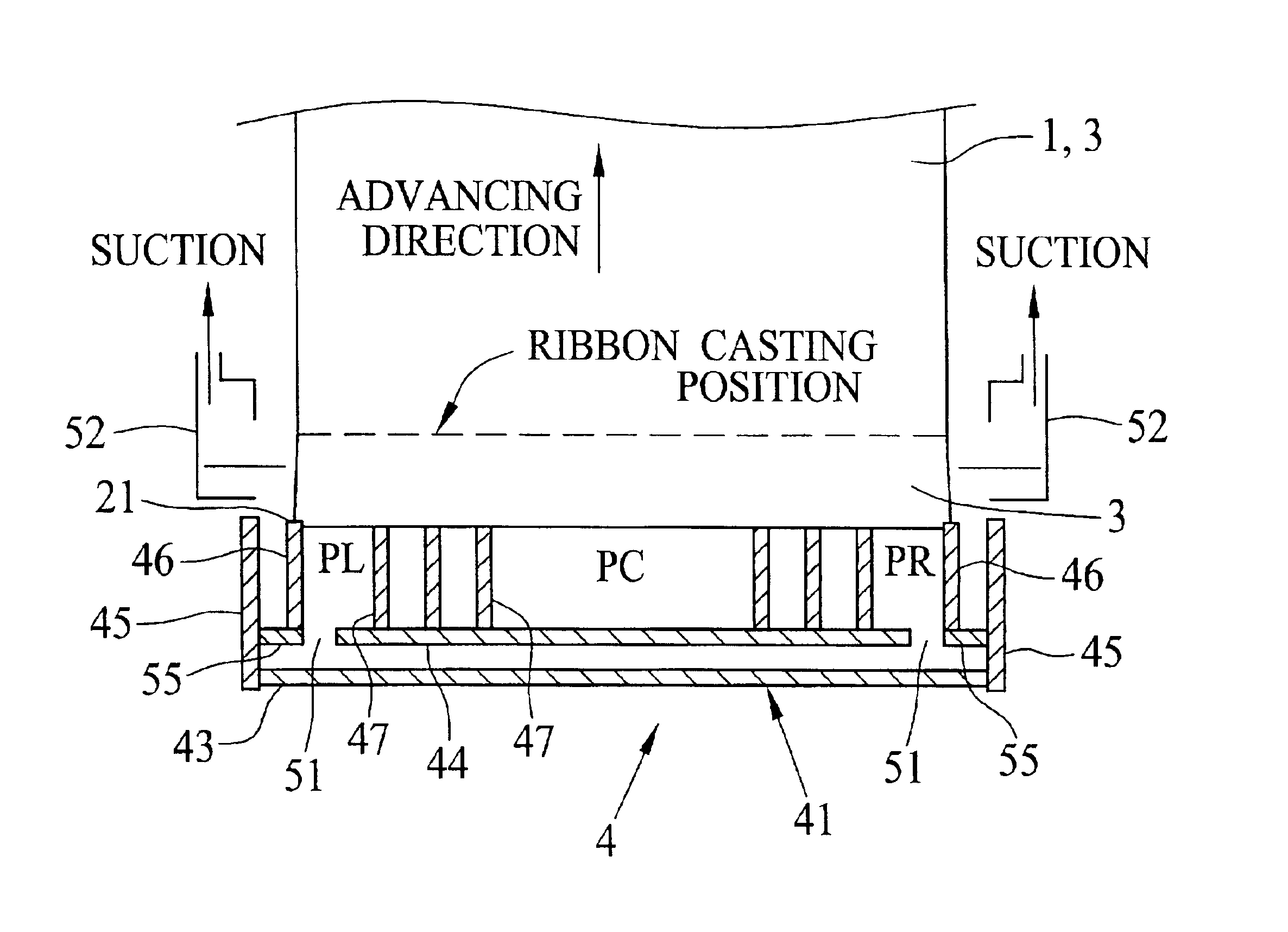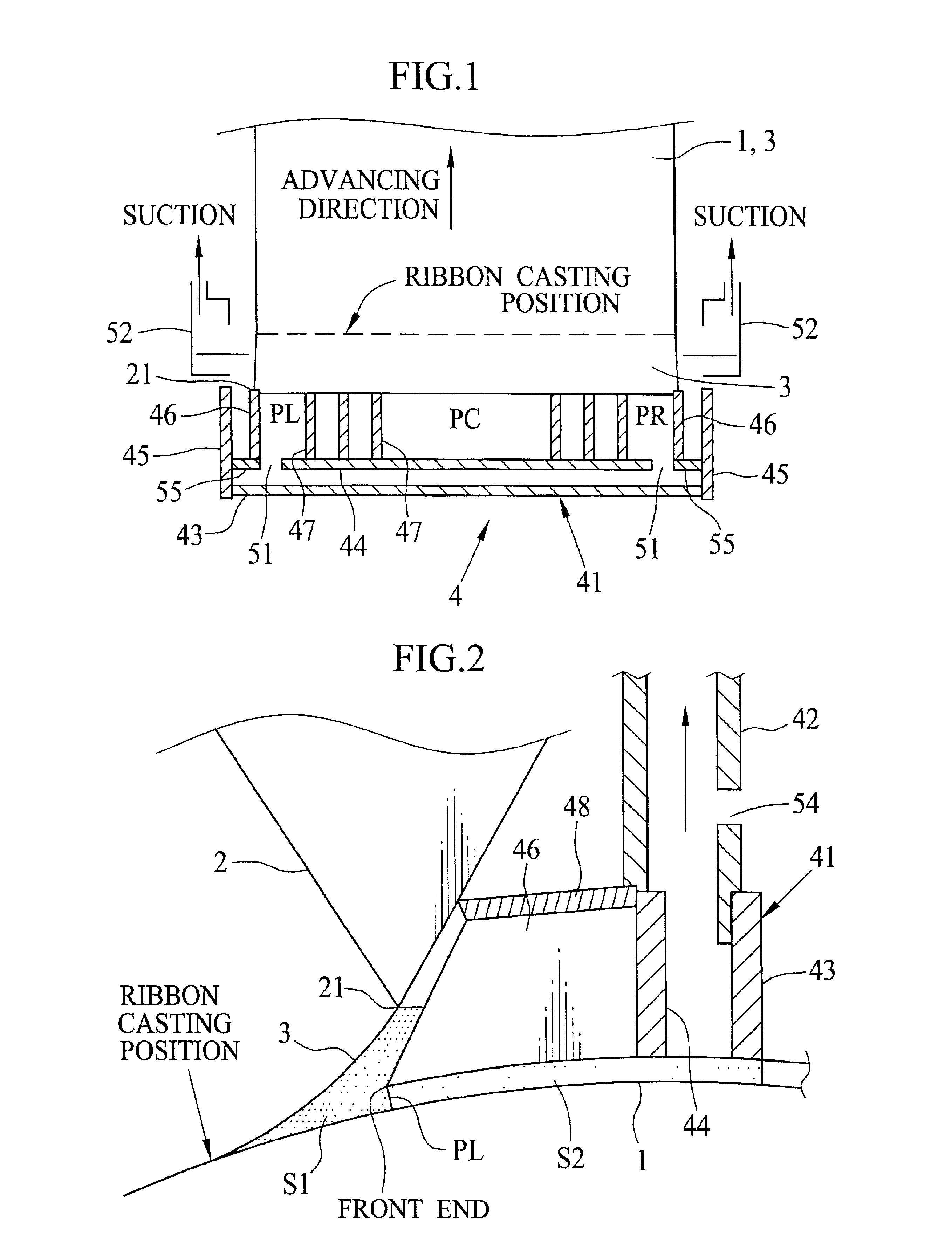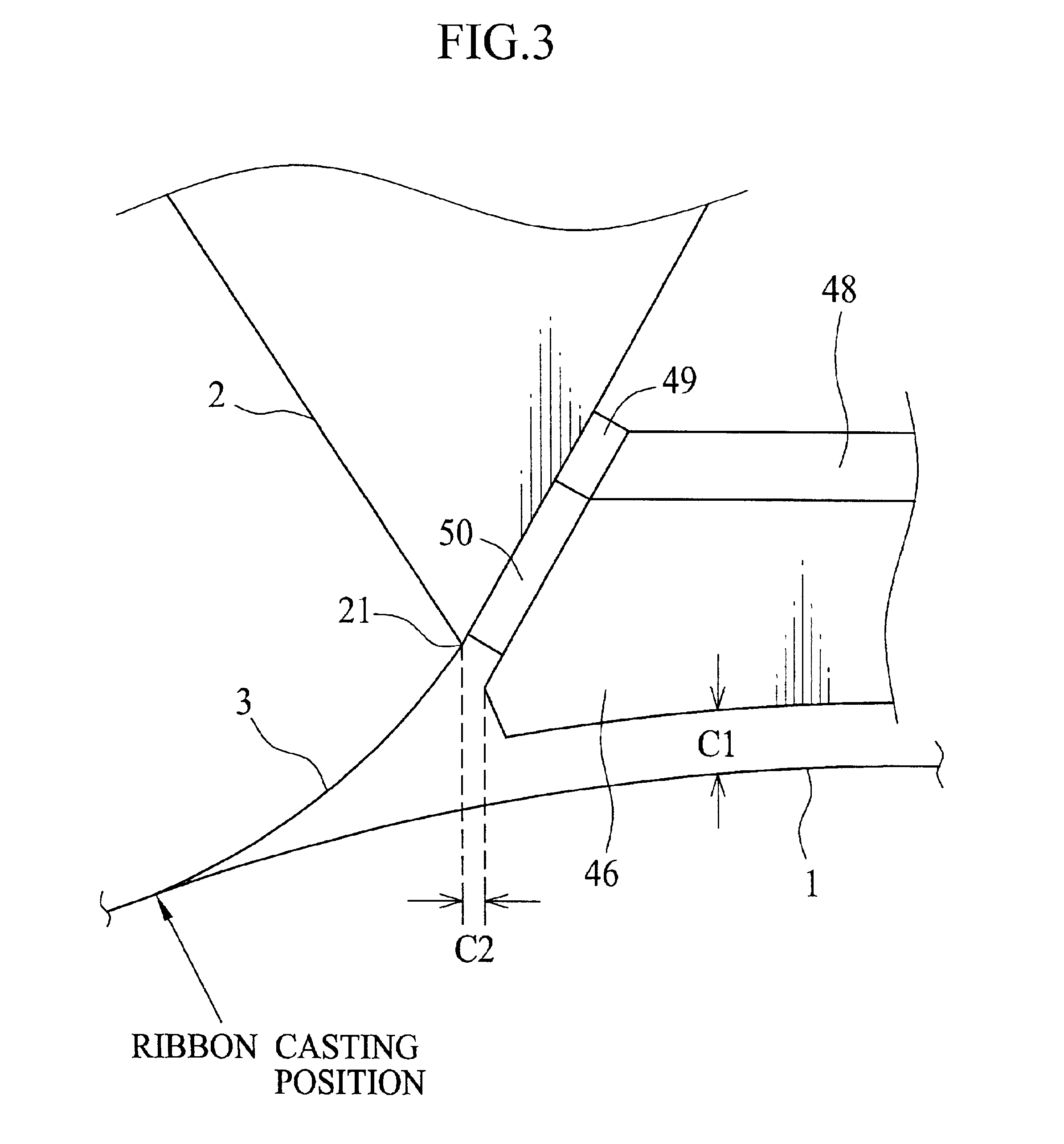Film formation method capable of preventing fluctuation of ribbon
a film formation method and film technology, applied in auxillary shaping apparatus, butter production, polarising elements, etc., can solve the problems of uniform edge portion of the ribbon and decrease of film plainness,
- Summary
- Abstract
- Description
- Claims
- Application Information
AI Technical Summary
Benefits of technology
Problems solved by technology
Method used
Image
Examples
embodiment
Experiment A
In experiment A, the dope has the following composition.
After preparing the dope from the above composition, plural films are formed by changing various conditions. A thickness T of the lateral end seal is 5 mm. A casting speed of the ribbon 3 is 50 m / min. The degree of decompression PC is -98.1 Pa (-10 mmAq). A thickness of the film is 80 .mu.m. Other formation parameters are shown in FIG. 8, in which comparison means a comparative embodiment, V1 represents the value (PC-PL).times.100 / .vertline.PC.vertline., V2 represents the value .vertline.PL-PR.vertline..times.100 / .vertline.0.5(PL+PR).vertline., L is an average value of L. R terraced unevenness value, appearance and result, which will be described later, are shown in FIG. 9.
experiment b
In experiment B, the dope has the following composition.
After preparing the dope from the above composition, a plurality of films are formed by changing various conditions. A thickness of the side seal T is 5 mm. A casting speed of the ribbon 3 is 50 m / min, and a degree of decompression PC is -343.2 Pa (-35 mmAq). A thickness of the film is 40 .mu.m. Other formation conditions are the same as those in Experiment A. R terraced unevenness value, appearance and result are shown in FIG. 10.
experiment c
, D
In Experiment C, the film is made from the dope used in Experiment A by use of a multiple flow cast die 65 of feedblock type shown in FIG. 7. In Experiment D, on the other hand, the film is made from the dope used in Experiment B by use of the multiple flow cast die 65. As shown in FIG. 11, the film 70 obtained in Experiment C, D includes an inner layer 71, a surface layer 72 and a back layer 73. A dry thickness of the inner layer 71 is 50 .mu.m. The amount of cellulose acetate of the dope for the surface and back layers 72, 73 is 5% smaller than that for the inner layer 71. A dry thickness of the surface and back layers 72, 73 is 5 mm. In Experiment C, D, a thickness of the side seal T is 5 mm. A casting speed of the ribbon 3 is 60 m / min, and a degree of decompression PC is -245.2 Pa (-25 mmAq). R terraced unevenness value, appearance and result are respectively shown in FIG. 12 (Experiment C) and FIG. 13 (Experiment D).
R terraced unevenness value, appearance and result are dete...
PUM
| Property | Measurement | Unit |
|---|---|---|
| thickness | aaaaa | aaaaa |
| wt. % | aaaaa | aaaaa |
| wt. % | aaaaa | aaaaa |
Abstract
Description
Claims
Application Information
 Login to View More
Login to View More - R&D
- Intellectual Property
- Life Sciences
- Materials
- Tech Scout
- Unparalleled Data Quality
- Higher Quality Content
- 60% Fewer Hallucinations
Browse by: Latest US Patents, China's latest patents, Technical Efficacy Thesaurus, Application Domain, Technology Topic, Popular Technical Reports.
© 2025 PatSnap. All rights reserved.Legal|Privacy policy|Modern Slavery Act Transparency Statement|Sitemap|About US| Contact US: help@patsnap.com



